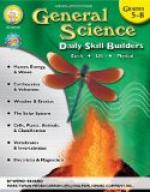If washing powder is put on clothes dry, or is thrown into a crowded tub, it will eat the clothes before it has a chance to dissolve in the water. The only safe method is to dissolve the powder before the clothes are put into the tub. The trouble with our public laundries is that many of them are careless about this very fact, and do not take time to dissolve the powder before mixing it with the clothes.
The strongest washing powder is soda, and this cheap form is as good as any of the more expensive preparations sold under fancy names. Borax is a milder powder and is desirable for finer work.
One of the most disagreeable consequences of the use of hard water for bathing is the unavoidable scum which forms on the sides of bathtub and washbowl. The removal of the caked grease is difficult, and if soap alone is used, the cleaning of the tub requires both patience and hard scrubbing. The labor can be greatly lessened by moistening the scrubbing cloth with turpentine and applying it to the greasy film, which immediately dissolves and thus can be easily removed. The presence of the scum can be largely avoided by adding a small amount of liquid ammonia to the bath water. But many persons object to this; hence it is well to have some other easy method of removing the objectionable matter.
208. To remove Stains from Cloth. While soap is, generally speaking, the best cleansing agent, there are occasions when other substances can be used to better advantage. For example, grease spots on carpet and non-washable dress goods are best removed by the application of gasoline or benzine. These substances dissolve the grease, but do not remove it from the clothing; for that purpose a woolen cloth should be laid under the stain in readiness to absorb the benzine and the grease dissolved in it. If the grease is not absorbed while in solution, it remains in the clothing and after the evaporation of the benzine reappears in full force.
Cleaners frequently clean suits by laying a blotter over a grease spot and applying a hot iron; the grease, when melted by the heat, takes the easiest way of spreading itself and passes from cloth to blotter.
209. Salts. A neutral liquid formed as in Section 204, by the action of hydrochloric acid and the alkali solution of caustic soda, has a brackish, salty taste, and is, in fact, a solution of salt. This can be demonstrated by evaporating the neutral liquid to dryness and examining the residue of solid matter, which proves to be common salt.




